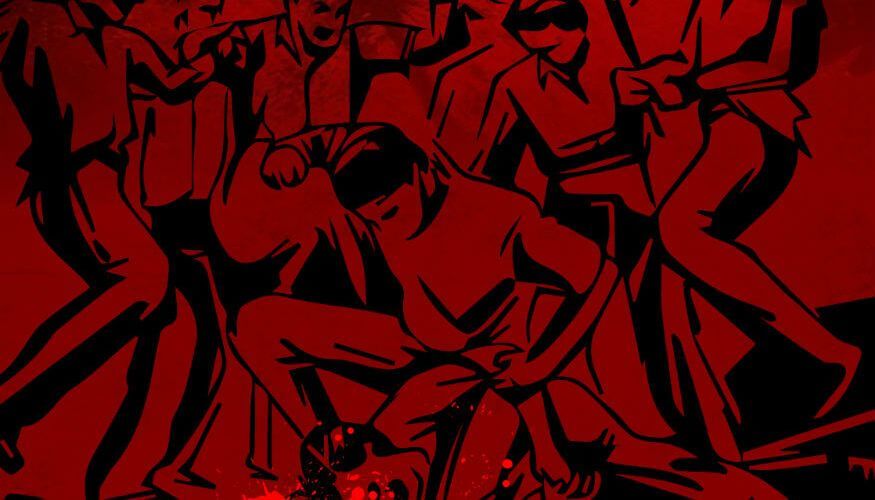‘Lynching’ no more holds a shock value for us Indians. The series of headlines covering deaths caused by a frenzied mob has gradually made us immune to the mental impact of such horrendous crimes. The hatred of these groups can stem from a range of religious, ideological blindness to social media rumors. In the beginning of July 2018, according to an investigation carried out by The Indian Express, 27 killings took place across nine states in India over child lifting rumors making rounds on Whatsapp. There is still no official record of number of deaths caused by lynching in India over a period of two years or more and the National Crime Record Bureau(NCRB) is expected to come up with its first ever report on deaths caused by lynching in India since 2017.
Owing to the intensity of the crime, there is an ongoing debate pertaining to the need of an anti-lynching legislation in India. Presently, the people accused under the crime of lynching, are tried under section 302(murder), section 307 (attempt to murder), section 147 (rioting), section 148 (rioting with deadly weapon) and section 149 (unlawful assembly) of the Indian Penal Code. However, it is pertinent to note that these sections distinctly connote different meanings and can be charged varyingly as a particular case demands. There are also grounds open for a degree of impunity, which ceases to cater to the punishment for the heinous crime of lynching.
On 17 July, 2018, in Tehseen S. Poonawalla v. Union of India and others, the Supreme Court in its judgment emphasized the need for an anti-lynching legislation that can strictly regulate and can make provisions for punishing the perpetrators of such a crime. The following three statements encapsulate the Supreme Court’s emphasis on an anti-lynching legislation:
“The law may not be able to make a man love him, but it can keep a man from lynching him.”
This statement mentioned by the bench headed by CJI, Dipak Misra, conveys the necessity of a law to bind the citizens from committing or participating in a crime. Rampant killing of people, by a mob influenced by rumors, illogical reasoning and uncontrollable anger results into complete lawlessness and fiercely attacks the roots of an established human “civilization”. An anti-lynching law can instill a fear of the grave consequences one will have to face under the process of trial with very limited options available for damage control and hence, can bring down the number of lynching incidents in the country.
“Lynching is an affront to the rule of law and to the exalted values of the constitution itself.”
Our constitution bestows upon us the fundamental rights and freedoms necessary for us to live our life with dignity and in harmony. An act of lynching on any grounds brutally violates these rights of the victim, whether or not a criminal, and must be condemned by every democratically concerned citizen, especially those who are authorized to do so. Any kind of impunity through various means of law, given to those indulged in such a deplorable crime must be considered as undermining the very existence of the constitution of India.
“What the law provides may be taken away by lawful means; that is the fundamental concept of law.”
None of us are entitled to take the law in our hands. The provisions of a law assist in enforcing a system necessary to provide equal opportunity to everyone to represent themselves and to impart justice in a fairest possible manner. The objective of an anti-lynching law should be to ensure that the public keeps faith in the law enforcing system and prevent them from taking charge themselves under the pretext of faithlessness or distrust of the governing institutions.
Lynching has become a global issue and the causes vary for different countries depending upon their social and cultural atmosphere. The United States has a history of African American deaths caused by lynching and there were over 200 bills proposed to make lynching a criminal offence. On 29 June 2018, in another major step, three African American US senators proposed a bill to make lynching a federal hate crime. In early December 2017, Nigeria introduced an anti-mob lynching bill, referred to as jungle justice, and has reached its concluding stage.
The National campaign against mob-lynching of India initiated a Manav Suraksha Kanoon (MaSuKa) law in July 2017, making lynching a non-bailable offence and provision for life imprisonment. One of the provisions of the draft states suspension of the Station Holding Officer (SHO), which is vague as it does not specify the grounds for suspension. Hence, the draft becomes debatable. However, given the sweeping instances of deaths and mob violence over the years and taking example from the above-mentioned legislations, it is imperative for the Government of India to wake up and work on an anti-lynching legislation at the earliest. There is undoubtedly a need to consider lynching as a separate crime and to deal with it; an anti-lynching legislation is a way forward.
References
An Express Investigation Part 2: Look who all make up the murderous lynch mob. (2018, July 15) The Indian Express. Retrieved from https://indianexpress.com/article/india/murderous-mob-lynchings-accused-whatsapp-rumour-investigation-child-lifting-5249318/
MASUKA law: National Campaign Against Mob Lynching drafts bill to address rising violence. (2017, June 29) First Post. Retrieved from https://www.firstpost.com/india/masuka-law-national-campaign-against-mob-lynching-drafts-bill-to-address-rising-violence-3757697.html
Nigeria set to pass a law against mob lynching. Will it make a difference? (2017, December 5). The Conversation. Retrieved from https://theconversation.com/nigeria-set-to-pass-a-law-against-mob-lynching-will-it-make-a-difference-87890
Sandra E. Garcia (2018, June 29) 3 Black U.S. Senators Introduce Bill to Make Lynching a Federal Hate Crime. New York Times. Retrieved from https://www.nytimes.com/2018/06/29/us/senate-anti-lynching-bill.html
Tehseen S. Poonawalla vs. Union of India and others [WP(C) 754/2016] 2018. Retrieved July 19, 2018, from https://barandbench.com/guidelines-supreme-court-horrendous-acts-mobocracy-lynching/
Image Credit: Kractivist

